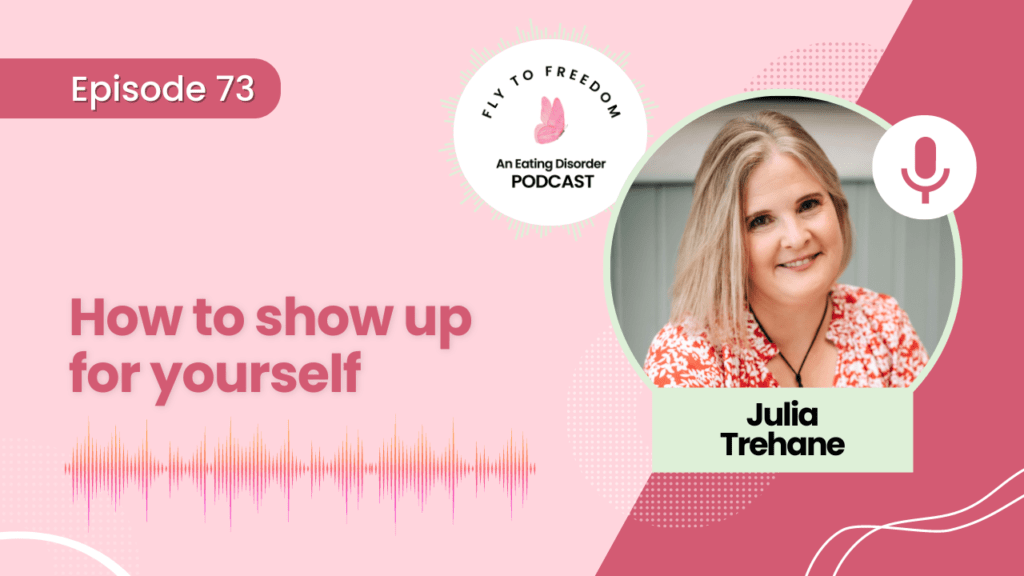Recovery from an eating disorder like anorexia nervosa demands immense personal courage, commitment, and self-compassion. The anorexia voice often thrives on rigid rules, harsh self-criticism, and avoidance of difficult emotions, making the path to recovery complex and challenging. To reclaim your life from this destructive disorder, you must consciously choose to show up for yourself—repeatedly—in ways that defy the self-judgment and perfectionism that fuel the anorexia cycle.
The Science of Self-Compassion in Anorexia Recovery
Self-compassion, or the act of treating oneself with kindness, has been shown to significantly impact emotional and psychological well-being. Research by psychologist Dr. Kristin Neff, a pioneer in self-compassion studies, reveals that self-compassion is linked to lower levels of anxiety, depression, and shame—key factors that maintain disordered eating behaviors in individuals with anorexia .
Neurologically, self-compassion activates the brain’s caregiving system, particularly in areas such as the anterior cingulate cortex and insula. These regions are responsible for emotional regulation, self-awareness, and the ability to generate compassionate responses to distress. Conversely, self-criticism, a hallmark of anorexia, triggers the brain’s threat system, heightening cortisol levels and reinforcing maladaptive behaviors like food restriction and excessive exercise .
In essence, self-compassion acts as a buffer against the self-loathing and fear of failure that often drives disordered eating, replacing harsh inner criticism with understanding, patience, and empathy.
How Anorexia Thrives on Self-Judgment
People who suffer from anorexia are often experts in self-criticism and perfectionism. These thought patterns contribute to emotional avoidance, rigid food rules, and harmful compensatory behaviors like purging, excessive exercise, or severe caloric restriction. A study published in the Journal of Eating Disorders highlights that individuals with eating disorders tend to have heightened sensitivity to perceived imperfections in themselves, coupled with a distorted sense of control over their body weight and shape .
This cycle of self-judgment reinforces the anorexia voice, making recovery seem like an impossible feat. Yet, breaking free from anorexia is possible, and it begins with cultivating an attitude of self-compassion.
Breaking the Cycle: Self-Compassion as a Key Recovery Tool
Self-compassion offers an antidote to the destructive inner critic. It requires practicing kindness toward yourself, especially during moments of perceived failure or imperfection. Instead of berating yourself for missing a goal or feeling uncomfortable with weight restoration, pause and reframe those thoughts. Ask yourself: “How would I respond to a loved one facing this challenge?” Then, apply that same gentleness and understanding to yourself.
Studies show that self-compassion increases emotional resilience—the ability to recover quickly from stress or adversity. This is critical in anorexia recovery, where emotional ups and downs are common . By accepting that you are human and prone to struggle at times, you can disarm the isolation and shame that feed the anorexia cycle.
Practical Strategies for Cultivating Self-Compassion
- Creating a Self-Compassion Mantra
Developing a personalized self-compassion mantra can reinforce new neural pathways of self-kindness, which counterbalance the harsh inner critic. My email community receive a new mantra every morning to start the day right. Examples include:
– “I am worthy of love and care, even when I struggle.”
– “My value is not defined by my appearance or achievements.”
Repeating this mantra when you notice self-criticism can gradually shift your mindset and weaken the hold of the anorexia voice.
- Self-Validation: Acknowledging Your Emotional Experience
Validating your emotions is essential in eating disorder recovery. Research shows that self-validation—recognizing that your thoughts and feelings are understandable given your experience—can reduce emotional distress and increase self-acceptance .
For example, during recovery, it is natural to feel anxious about gaining weight or changing long-standing behaviors. Acknowledging these feelings as valid, rather than denying or suppressing them, allows you to approach recovery from a place of self-compassion.
- Neuroscience of Self-Compassion and Anorexia
Studies on the brain reveal that self-compassion helps reduce the activation of the amygdala—the brain’s fear and threat center. The prefrontal cortex, which governs rational thinking and emotional regulation, becomes more engaged when individuals practice self-compassion . This shift allows for clearer decision-making, making it easier to navigate the recovery process without becoming overwhelmed by fear or shame.
The Role of Reparenting in Recovery
Reparenting yourself is another powerful technique for cultivating self-compassion. This involves nurturing yourself as you would a child, particularly when faced with moments of failure or difficulty. If you find yourself slipping back into restrictive eating habits or self-criticism, pause and ask, “How would I comfort a loved one who feels this way?” Over time, this practice helps to rewire your brain toward more compassionate responses to your own suffering.
Patience, Persistence, and the Power of Small Wins
Anorexia recovery is a gradual process, requiring long-term commitment and patience. It is important to acknowledge that setbacks are a normal part of the journey. Neuroscience research shows that the brain forms new habits through repetition, meaning every act of self-compassion helps to reinforce healthier patterns of thought and behavior .
Celebrate small victories—each time you choose self-kindness over criticism, it strengthens new neural pathways that will eventually overpower the anorexia voice.
See Action steps below….
I recorded this podcast which accompanies this article. Have a listen by clicking on the image
Action Steps for Building Self-Compassion in Anorexia Recovery
1) Create a Self-Compassion Mantra
Write out a mantra that resonates with your recovery journey and use it daily to counteract self-critical thoughts.
2) List 5 Self-Validation Coping Statements
Identify 5 statements that validate your emotions during difficult times (e.g., “It’s okay to feel anxious about food today; I’m still moving forward in my recovery.”).
3) Practice Reparenting Yourself for One Week
When you experience a setback or struggle, respond to yourself as you would a beloved child or friend.
4) Engage with Body-Positive Media
Follow social media accounts that promote body appreciation, mental health, and self-compassion rather than focusing on appearance. Have a look at my Instagram as an example
5) Daily Self-Kindness Practice
Each morning, commit to one act of self-kindness for that day. It could be taking a mindful walk, preparing a nourishing meal, or simply giving yourself permission to rest.
By actively incorporating self-compassion and patience into your recovery journey, you reclaim the inner strength necessary to overcome anorexia and build a life rooted in self-respect and resilience.
If you’d like me to help you through your recovery, with proper, effective, science backed techniques and everything you need to create a better life, free from your eating disorder, reach out to me and take that 1st step. Oh, and this part is free of charge by the way!


